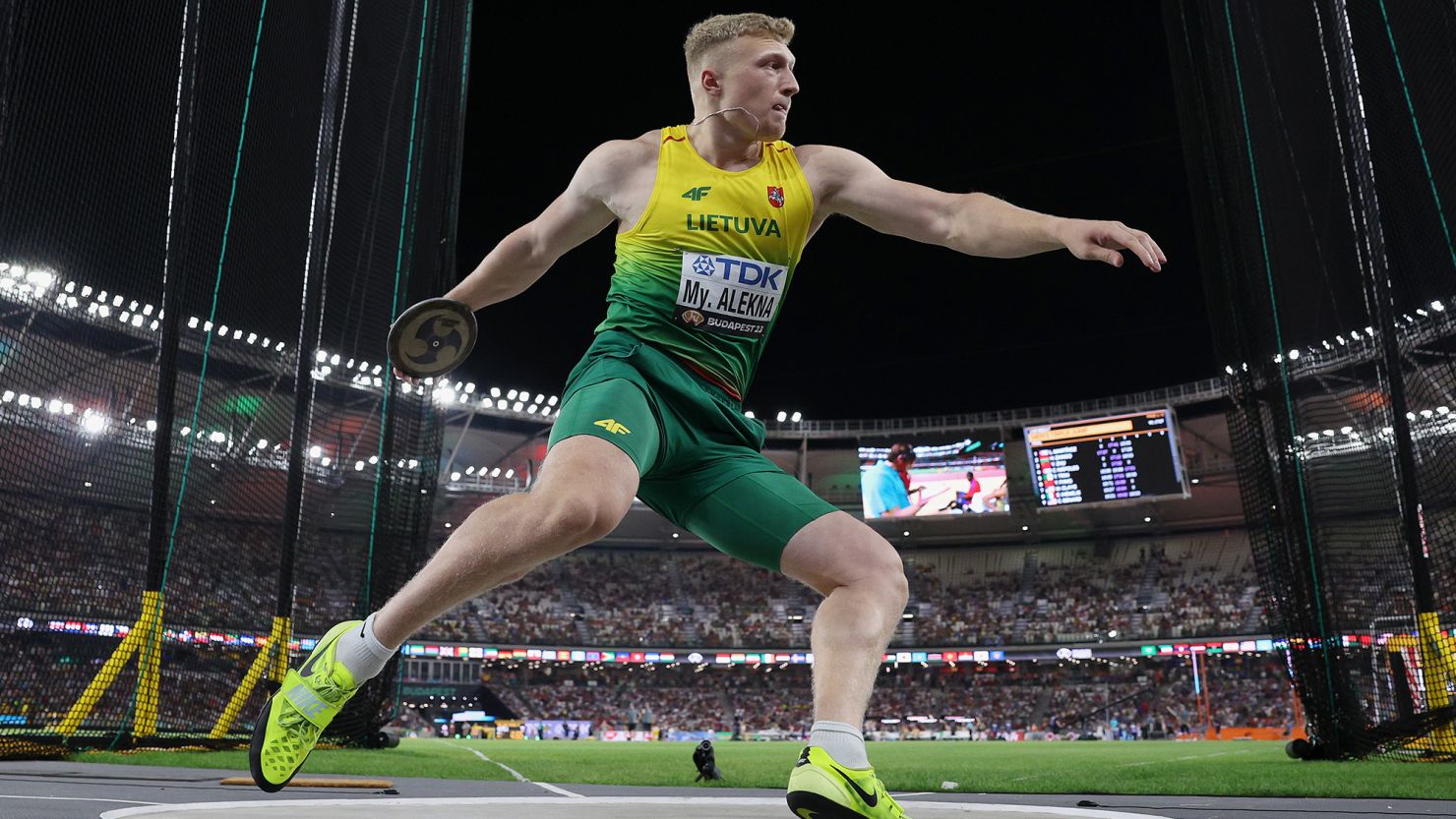Lithuanian discus thrower Mykolas Alekna broke a world record that had stood for four decades at the Oklahoma Throws Series World Invitational meeting in Ramona on Sunday.
The Lithuanian’s throw of 74.35 meters surpassed Jurgen Schult’s effort in 1986, when the German threw 74.08m. Schult’s landmark effore had been the longest-standing record in track and field, according to Olympics.com.
According to World Athletics, Alekna’s throw was initially measured at 74.41m but later was revised, pending ratification.
“It’s hard to understand what I just did,” Alekna said after his achievement. “I saw the throws and I knew that it could be the day, and it just happened.”
Alekna came to Ramona boasting the longest throw of the season – his previous personal best of 71.39m on April 6 moved him to 10th on the world all-time list – and he carried on that momentum. All six of his attempts on Sunday were over the 70m mark.
Born in Lithuania on September 28, 2002, Alekna is already one of the leading athletes in his discipline.
He moved to train in the US in 2021, and at 20, he became the youngest athlete to throw beyond 70m.
He is also a two-time medalist at the World Championships, and the 2022 European champion.
It seems like an apple does not fall far from the tree – Alekna’s father, Virgilijus, is an Olympic record holder in the same discipline. Virgilijus threw 69.89m in Athens 2004. The Lithuanian is a two-time world and Olympic champion.
Lithuania’s long-standing discus tradition
Alekna’s record throw is a testament to Lithuania’s deep-rooted tradition in this track and field event – the country has been hugely successful with discus in hand.
While Lithuania’s discus throwing history began in 1921, according to its national broadcaster LRT, the nation had not seen success until Romas Ubartas became the European champion while representing the Soviet Union in 1986. Two years later, he won silver at the Seoul Olympics.
After independence from the Soviet Union, Ubartas became the first Lithuanian to win gold at the Barcelona games. Since then, all discus throw finals at the Olympics have featured at least one Lithuanian.
After the collapse of the Soviet Union, Lithuanian discus throwers have won five Olympic, eight World and six European championship medals – nine of them were gold.
Add Alekna’s record to an that impressive medal count, and you get a remarkable achievement for a nation of just over three million people.



